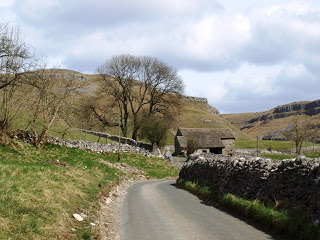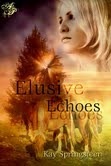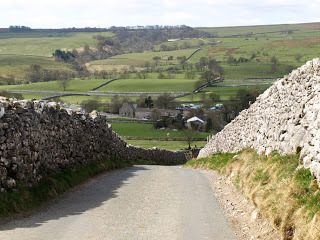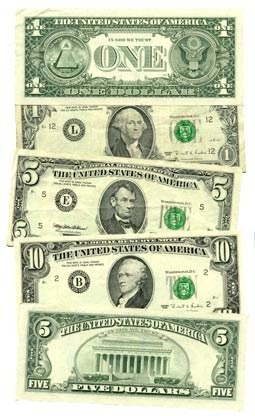Stuart Aken's Blog, page 293
August 21, 2011
Stuart's Daily Word Spot: Libel or slander?
 Libel or slander? Libel: noun – in Civil and Admiralty Law, a document bearing a plaintiff'sallegations and establishing a suit; in Scottish Law, a formal statementsetting out grounds on which a civil or criminal prosecution is made, anindictment; in Ecclesiastical Law, the first pleading, or the plaintiff'swritten statement or charges, in a plenary case; a small book, short piece ofwriting; a leaflet or pamphlet publicly posted or circulated and defaming the character of someone; a false anddefamatory statement; some thing or circumstance that tends to bring undeserveddiscredit on a person, a country, an organisation, by misrepresentation; in Law,a false and defamatory statement in writing, film, or other permanent form; theact or offence of publishing such a statement.
Libel or slander? Libel: noun – in Civil and Admiralty Law, a document bearing a plaintiff'sallegations and establishing a suit; in Scottish Law, a formal statementsetting out grounds on which a civil or criminal prosecution is made, anindictment; in Ecclesiastical Law, the first pleading, or the plaintiff'swritten statement or charges, in a plenary case; a small book, short piece ofwriting; a leaflet or pamphlet publicly posted or circulated and defaming the character of someone; a false anddefamatory statement; some thing or circumstance that tends to bring undeserveddiscredit on a person, a country, an organisation, by misrepresentation; in Law,a false and defamatory statement in writing, film, or other permanent form; theact or offence of publishing such a statement.Slander: noun - utterance or spreading of a false or malicious statementabout a person, intended to injure or defame; in Law, a false and defamatoryoral statement; the act or offence of making such a statement; Discredit,disgrace, or shame, especially as incurred by transgression of moral law;disrepute, opprobrium; a source of shame or dishonour; a discreditable act orperson; a cause of moral lapse or fall.
In the legal definitions, 'libel' involves letters(publication of some sort), 'slander' is said, spoken.
So, you can shout slander from the rooftops or you can libelthrough written, recorded, filmed or any other permanent means; in either case,you're open to a law suit.
Pic: Bullrushes in Driffield, East Riding of Yorkshire.
Published on August 21, 2011 07:00
August 20, 2011
Stuart's Daily Word Spot: Loose or Lose
 Loose means ill-fitting and likely to fall off.Lose means to fail to keep, no longer to have, and, ofcourse, not to win.
Loose means ill-fitting and likely to fall off.Lose means to fail to keep, no longer to have, and, ofcourse, not to win.'Loose' at least looks like its pronunciation. But it failsto rhyme with 'choose', which, paradoxically, is a better match with 'lose'. Ofcourse, 'lose' doesn't rhyme with 'chose', either. No wonder people from otherlands have such difficulty learning English. And, I don't know about you, butthe more I look at 'lose', the less it appears to be spelt correctly.
Anyway, here are a couple of sentences that might help youremember which to use:
'If you choose to wear your knickers loose, you may losemore than just your knickers.
'Lose your belt, and your pants will become loose.'
Pic: A patch of Rose Bay Willow Herb, which looks great in the wild, but is a devil in your garden.
Published on August 20, 2011 07:00
August 19, 2011
Stuart's Daily Word Spot: Mace
 Mace: noun - weaponcomprising a heavy staff or club, either completely of metal or with a metalhead, usually spiked; sceptre or staff of office carried before certainofficials, in particular the one that lies on a table in the House of Commonswhen the Speaker is in attendance: a symbol of the authority of the House;stick with a flat square head, used for propelling the ball in bagatelle or, atone time, billiards; a cooking spice obtained from the driedcovering of the nutmeg fruit seed; a brand of tear gas.
Mace: noun - weaponcomprising a heavy staff or club, either completely of metal or with a metalhead, usually spiked; sceptre or staff of office carried before certainofficials, in particular the one that lies on a table in the House of Commonswhen the Speaker is in attendance: a symbol of the authority of the House;stick with a flat square head, used for propelling the ball in bagatelle or, atone time, billiards; a cooking spice obtained from the driedcovering of the nutmeg fruit seed; a brand of tear gas.'Long Tallfellah bore a weapon of suchdestructive power that few dared confront him on the field; his mace hadcrushed many skulls during his decades of battling against the Dark Porker.'
'Once the military police had the protesterspressed into an area from which they could make no escape, they sprayed themliberally with Mace and beat them with batons as they then tried to flee thescene.'
Pic: On the road to Goredale Scar, North Yorkshire.
Published on August 19, 2011 07:59
August 18, 2011
Author Interview with Kay Springsteen
 Hello Kay, please tell us about you, as a writer.
Hello Kay, please tell us about you, as a writer.I've written since childhood. When I ran outof things to read, I'd make up stories and write them in notebooks, later onthe typewriter, then the computer. But I never pursued publication until thisyear. It was just more for fun. I love to craft stories in which the peoplehave lots to overcome but in the end they ultimately win.
Your book 'Elusive Echoes', isa contemporary romantic suspense; perhaps you'd you give us some insight intoit in a few sentences.
Sean and Melanie have been nearly constantcompanions since childhood, except for several years when she had been forcedto live with relatives she hated. Those years scarred her and made it hard forMel and Sean to reconnect. Now her past coming back in a big way.
How did you come to write this particular book?
This is actually a follow up book to myrelease from earlier this year, Lifeline Echoes, and is the story of THAThero's brother.
Do you have a favourite character from thebook? If so, who and why this particular one?
My favourite character in both the Echoesbooks is the heroes' father, Justin. He's kind of an amalgam of my parents andme as a parent to my own children. Imparts bits of wisdom throughout thestories, strong sense of right and wrong. But he can be counted on to givestraight talk.
Where can people buy your books?
Available at: AstraeaPress, Amazon,Barnes& Noble
What qualities does a writer need to be successful?
Availability to readers. If you don't connectwith readers on a more personal level, you can be the greatest writer in theworld, but you'll still fall short.
What's your working method?
I have two part-time jobs aside from mywriting, so a lot of time I work on my stories late into the night. It seems towork. No phone distractions, very peaceful (though I do write to music).
What's the single biggest mistake made by beginner writers?
Not having an experienced critique partneror group and/or not listening to their advice. Writers don't have to doeverything every crit partner suggests, but I recommend if you don't agree youtalk it through and see where you and the partner can come to an agreement. Ifthe crit partner doesn't like it, find out the reasons.
To what extent are grammar and spelling important in writing?
They are 100% important. I am also an editorfor a different press than where I write, and I see many mistakes thatsometimes ruin a good manuscript.
How much do you revise your MS before sending it off?
I write a draft, then revise it. Then Isubmit to my critique partners and make revisions based on feedback. Then Ire-read it and make further adjustments. Then I submit my work. After that, Ilisten to the content and line editors and make adjustments as they guide.
As a writer of sweet romance, contemporary romance and romanticsuspense, to what extent do you think genre is useful in the publishing world?
I edit a very high heat level but I got mybreak in publishing by writing sweet. It really doesn't matter, the genre, so muchas you enjoy what you write and you market to the readers who enjoy what youwrite.
Many authors see marketing as a bind. What's your opinion on this, andhow do you deal with it?
I don't do a ton of heavy marketing. I letreaders know I'm out there, and when I have a new release but I don't pressureothers or harass them with my promotions. I do try to reach out to othersthrough blog tours such as this and I open my own blog for others to visit.
What sort of displacement activities keep you from writing?My "real job," running errands, andhousework are my least favourite time killers. Gardening, hiking with my dogs,playing with my granddaughter, and photography are things I love so I don'tmind stepping away from a story to participate.
What support, if any, do you receive from family and friends, or awriting group?
My friends and children are the mostsupportive ever! My daughters enjoy helping me plot and plan my stories.
Is presentation of the MS as important as agents and publishers suggest?
I believe it is, especially since I alsowork on the editing side of things. If you want to be taken seriously, beprofessional. Writing IS a profession. If you want to be successful in anyprofession, you put on the uniform. A banker doesn't apply for a job wearingBermuda shorts and sandals. An author shouldn't apply to a publisher with amanuscript that is the equivalent of that.
How long does it take you to write a novel?
Depends on the novel. Usually about 1 monthto a rough draft then 6 months to finish revisions and submission.
Who or what inspires your writing?
Everything around me. I people watch when Igo out. I watch the news. I listen to music. And I talk to my family. All ofthese have potential to plant a seed that can and often does grow into a majorstory.
If there's a single aspect of writing you find frustrating, what is it?
The muddle in the middle – just pastintroducing the characters but just before the first obstacle. When thecharacters don't feel inspired, and seem to want to mill about aimlessly.
Is there a particular feature of writing that you really enjoy?
The hunt for the next plot.
Do you believe creative writing is a natural gift or an acquired skill?
I think it's a bit of both. But I believethe possession of innate talent inspires the desire to hone the craft. I feelthis about any inspired art form.
What are you writing now?
A novel in the tradition of my debut novel,Heartsight, which is currently titled Heartcries.
Do you have a website or blog where readers can visit?
Interested people can find me at my blog http://kayspringsteen.wordpress.com/and on Facebook http://www.facebook.com/pages/Kay-Springsteen-Author-of-Romance/143469035711422
Given unlimited resources, where would you do your writing?
I would probably buy an RV, pack up my pups,and roll out across the U.S. stopping when I found something interesting, andwriting by voice recognition software. I do my best writing behind the wheel,but usually have to wait until I get to my computer before I can type what was"written" in my head.
Where do you actually write?
I write in my head almostconstantly, anywhere I happen to be. But physically typing the story out, I sitat my desk in an office of my home.
 Elusive Echoes
-PG rated novel
Elusive Echoes
-PG rated novel (mild violence and mature themes but no graphiccursing or explicit sexual encounters)
They're two people caught between friendshipand something more; they can't move forward, and they can't let go.
Drawn together from early childhood, Sean McGeeand Melanie Mitchell seemed destined for each other. But at age thirteen,Melanie was wrenched from the people she loved and forced onto a path sheloathed. Sean was no stranger to people leaving, but losing Melanie devastatedhim. When she suddenly reappeared in Orson's Folly, Sean was overjoyed. TheMelanie who came home, though, wasn't the same girl. She's got a harder edgeand she's obviously hiding something, but Sean no longer knows how to reachher.
Returning to Orson's Folly as an adult, all Melanie wantedto do was forget the years she spent away. But she soon learned that going homedidn't mean she could return to her old life—or her childhood sweetheart, Sean.Even their mutual attraction to one another hasn't rebuilt the bond of trustand closeness they once shared. It's been seven years since she returned andnow everything Melanie wants to forget has broadsided her. She must confronther demons and relive her past in an unexpected way or risk losing the only manshe's ever loved. But even if she succeeds, Sean might be lost to her anyway.EXCERPT:Mel sighed. She couldn't remembera time since they'd been teenagers when she hadn't wanted to be Sean's girl.Yet they never seemed to get beyond a few heated kisses before he hightailed itin the opposite direction. Sometimes it was hard to tell if he really wanted tokiss her or if he was just being polite."Maybe I'll see you tomorrow,then?" As always she felt a little anxious about his answer, though she usuallytried to cover her anxiety with an attitude of nonchalance.He smiled and gave her a peck onthe cheek with one last warm hug. Then he rubbed the back of his neck and casta sheepish glance her way. "Hope so."She breathed more easily when shecaught his "yes" tell. He always seemed just a little on the shy side when hesaid yes to something that was important to him.Sean waited for her to cross theparking lot again before he left. He probably didn't know she routinely stoodat the door and watched his taillights disappear.
Published on August 18, 2011 08:30
Stuart's Daily Word Spot: Irritate or aggravate?
 Irritate or aggravate?Very frequently used as though they are interchangeable, thesetwo words do have different meanings. Though it's true that 'irritate' can alsomean 'aggravate', aggravate cannot generally mean 'irritate' in proper usage.
Irritate or aggravate?Very frequently used as though they are interchangeable, thesetwo words do have different meanings. Though it's true that 'irritate' can alsomean 'aggravate', aggravate cannot generally mean 'irritate' in proper usage.Irritate: verb - excite,rouse or provoke a person; aggravate, excite or provoke an action or emotion; exciteto impatience or anger, annoy, exasperate; in medicine, to excite an organ toabnormal action or condition; produce an unpleasant sensation or inflammation; inbiology, to produce a response in an organ by some form of stimulus.
Aggravate: verb - loadsomeone or something with; bring as a charge against; strengthen, increase, ormagnify; colloquial only - exasperate or annoy someone.
'Caffeine can irritate the bladder in certain people,causing them to urinate more frequently.'
'Brian would frequently irritate Margaret with his obsessivechecking whether he had locked the doors before leaving the house.'
'The political extremists brought in Rent-a-Mob to aggravatethe situation on the protest, creating violence where there had previously beena peaceful protest.'
'Charlie would often aggravate Donna's insecurity bydeclaring she was fat and lazy.'
Pic: The rocky coast near Sissi, Crete.
Published on August 18, 2011 07:00
August 17, 2011
Stuart's Daily Word Spot: Labour
 Labour: noun - Effortof body or mind; physical or mental work; a job performed; pains taken tofurther a matter or obtain a favour; childbirth, the time from the start ofregular uterine contractions until the placenta is expelled; physical work requiredto execute a task; the contribution of a worker to production; workers, especiallymanual workers, taken as a social class or a political force; the Labour Party.
Labour: noun - Effortof body or mind; physical or mental work; a job performed; pains taken tofurther a matter or obtain a favour; childbirth, the time from the start ofregular uterine contractions until the placenta is expelled; physical work requiredto execute a task; the contribution of a worker to production; workers, especiallymanual workers, taken as a social class or a political force; the Labour Party.'Irish navvies supplied much of the labour needed toconstruct such engineering marvels as the railway viaduct at Ribblehead.'
'Catherine spent 27 hours in labour, puffing, panting andoccasionally cursing and screaming, before she gave birth to a wailing babyboy.'
'Labour and Conservative governments have more or lessalternated in power in the UK for the past century, often overturning the lawsmade by the previous incumbents and working in open opposition instead of rulingby consensus, as voting habits would suggest is the will of the people.'
Pic: The road down to Stainforth, North Yorkshire.
Published on August 17, 2011 07:59
Stuart's Daily Word Spot: Banker
 Image via Wikipedia
Image via WikipediaBanker: noun – achiseller, selfish user, cheat, liar, destroyer of worlds, wanker (of course),greedy pig, money worshipper, materialist, …. I'm sure you can add your own tothis list of synonyms; please do.
'The banker promised to do the best he could for thecustomer but discovered that this would be inconvenient for him, so helpedhimself instead.'
'Counting his customers' money, the banker decided he had moreright to it than the lawful owners, so devised sophisticated methods to robthem of it.'
'Advising his customer to take out the low interestmortgage, because it was cheaper than that offered by the opposition, thebanker smiled as he slapped on an unjustified and swingeing handling fee thatwas mentioned only within the fourth paragraph of the nineteenth page of thesmall print.'
'The customer didn't want or need Payment ProtectionInsurance, but the banker included it in the loan anyway, knowing that mostcustomers would either not notice or be too lazy or intimidated to demand itsremoval.'
'When I asked the banker whether the Payment ProtectionInsurance would apply at once in the event of redundancy or sickness, sheassured me this was the case. However, when I was made redundant a short whilelater, I learned that the PPI would not become effective until I had been outof work for 6 months.'
'The banker promised the government that he would lendmoney, at reasonable rates, to any viable small business that applied for it,but he made the process so difficult and costly that very few felt it was worththeir while.'
'When bonus time came around, the banker decided that normalrules - requiring some evidence of achievement, success or extraordinary effortto serve his customers – would not apply to those in the banking industry, sothey paid everyone above a certain level of seniority excessive sums regardlessof performance, and all the bankers were happy.'
I know this is an extra; but, hearing the news about mortgage lending schemes with small print and excessive handling charges, I just had to have my say.

Published on August 17, 2011 06:39
August 16, 2011
Stuart's Daily Word Spot: Verisimilitude
 Verisimilitude: noun - apparently true or real, resemblanceto truth, reality, or fact; realistic quality, probability; a statement that has the mere appearance or show of beingtrue or factual, an apparent truth.
Verisimilitude: noun - apparently true or real, resemblanceto truth, reality, or fact; realistic quality, probability; a statement that has the mere appearance or show of beingtrue or factual, an apparent truth.'Most writers rely on verisimilitude to draw their readersinto the fictional world of their novels, hoping that their suspension ofdisbelief will carry them through the events of the book.'
The classical, literarynotion of verisimilitude focusses on the role of the reader engaging with thefictional work of art. The novel should offer a pleasurable experience to thereader by facilitating the reader's willingness to suspend disbelief. Verisimilitudeis the means of achieving this mindset. To promote the willing suspension ofdisbelief, fiction needs to be credible. Something that's physicallypossible in the worldview of the reader can be defined as credible. Throughverisimilitude, the reader can glean truth even in fiction because it reflectsrealistic aspects of life.
Pic: Humber estuary at Hessle, East Yorkshire.
Published on August 16, 2011 07:00
August 15, 2011
Stuart's Daily Word Spot: Kamagraphy
 Kamagraphy: noun -process for making copies of original paintings, using a special press andtreated canvas, which reproduces accurate colours and the texture of thebrushstrokes.
Kamagraphy: noun -process for making copies of original paintings, using a special press andtreated canvas, which reproduces accurate colours and the texture of thebrushstrokes.Ideal for galleries, I imagine. But it does rather beg thequestion; 'What about forgeries?' And, of course, it explains why it's possibleto view what appear to be original paintings in more than one public gallery.Clever stuff, eh?
Pic: Looking north over Deepdale, East Yorkshire.
Published on August 15, 2011 07:00
August 14, 2011
Stuart's Daily Word Spot: Unreliable narrator
 Unreliable narrator: Aliterary term for a narrator who, out of ignorance, bias, limited viewpoint,simple self-interest or through inability to tell the truth, cannot be trusted.Generally, this character appears in first person stories, of course. Probablythe most well-know is Humbert Humbert, the wicked teller of VladimirNabokov's tale, Lolita. In my own romanticthriller, BreakingFaith, I employed the device of paired narrators, allowing the reader tosee things from the points of view of both the male and female protagonists. Idid this to illustrate that even the most well-meaning and honest of narratorscan sometimes be unreliable and mislead the reader, even if unintentionally.
Unreliable narrator: Aliterary term for a narrator who, out of ignorance, bias, limited viewpoint,simple self-interest or through inability to tell the truth, cannot be trusted.Generally, this character appears in first person stories, of course. Probablythe most well-know is Humbert Humbert, the wicked teller of VladimirNabokov's tale, Lolita. In my own romanticthriller, BreakingFaith, I employed the device of paired narrators, allowing the reader tosee things from the points of view of both the male and female protagonists. Idid this to illustrate that even the most well-meaning and honest of narratorscan sometimes be unreliable and mislead the reader, even if unintentionally.Other examples of unreliable narrators are:Wuthering Heights - Lockwood and Nelly Dean.Wilkie Collins' detective story The Moonstone (1868), in which theplot unfolds through different characters, who contradict each other and revealtheir biases.In Ken Kesey's novel, OneFlew Over the Cuckoo's Nest the narrator, "Chief" Bromden suffers from schizophrenia. Since his telling of events includes people growing or shrinking, wallsoozing with slime, and other bizarre events, the reader quickly recognises thatthis story teller is not to be trusted. In Sebastian Faulks' Engleby , the narrator, Mike Engleby, leadsthe reader to believe a version of events that's increasingly at odds withreality.
Published on August 14, 2011 07:00



